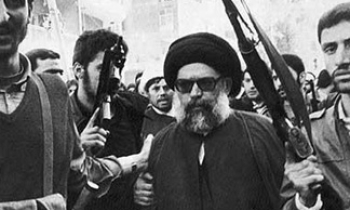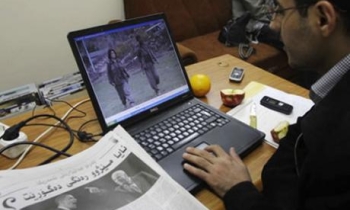A series of criminal cases against the Moroccan press, including criminal prosecutions of newspaper editors and the imposition of excessive fines, is posing a serious threat to the existence of independent publications in the North African country. Three journalists face possible imprisonment as a direct result of news or opinions published in their weeklies. In each case the monetary penalties are at the maximum end of what is allowed and could threaten the financial viability of a newspaper's operations.

"These frivolous cases pose a grave threat to the most essential functions of the press — to report on the government and the activities of its leaders," Committee to Protect Journalists (CPJ) Executive Director Ann Cooper said. "These large fines and the threat of imprisonment have the effect of censoring independent journalists."
Abdelaziz Koukas, publisher and editor of the independent weekly al-Ousbouia al-Jadida, faces three to five years in prison and a fine up to 100,000 dirhams (US$11,000) for defaming the monarchy under Article 41 of the Press and Publication Law 2002. The weekly also faces possible closure as a result of the trial, which is set to begin March 14, acording to CPJ.
The charges stem from an interview with Nadia Yassin, daughter of Sheikh Abd al-Islam Yassin, head of the outlawed Islamist organisation Justice and Charity, which the weekly published in early June 2005. Yassin criticised the monarchial system and stated that Morocco should become a republic. It is a constitutional offence in the country to criticise the monarchy or to advocate a different system of government.
Nour Eddine Miftah, editor of the independent weekly Al-Ayam, and Meriem Moukrim, a journalist for the weekly, are set to appear in a Casablanca court to face charges of disturbing public order by publishing "false" articles under Article 42 of the Press and Publication Law 2002.
The charges against thew two stem from a piece by Moukrim detailing the royal harem's influence on King Mohammed V and his son King Hassan II and saying that King Mohammed VI had broken from the harem's sway. If convicted, both journalists face one month to a year in prison and a fine of up to 100,000 dirhams (US$11,000). They face a second charge, under a law enacted in 1956, of publishing photographs of the royal family without obtaining prior consent.
In another case, the Casablanca Court of Appeal dealt a blow to press freedom when it upheld the criminal defamation conviction of Ahmed Reda Benchemsi, publisher and managing editor of the independent weekly TelQuel, and Karim Boukhari, the magazine's editor. In a December 29, 2005, ruling, the court affirmed the two-month suspended sentences given to the journalists, but it reduced damages from 1,000,000 dirhams (US$110,000) to 800,000 dirhams (US$88,400).

The journalists were denied further appeals. They were found guilty of defamation in August 2005 stemming from an article revealing that a female member of parliament was once a "chiekha," the equivalent of a cabaret dancer. The magazine used a fictitious name for the parliamentarian, Halima Assali, who sued the journalists nonetheless.
"Contrary to our expectations, the sentence is markedly disproportionate in its opposition to Ahmed Benchemsi and Karim Boukhari, in a trial that did not fully review the case. We hope that in the least, the court of appeal will be less severe to TelQuel during the second court process that will take place in January 2006," Reporters sans frontières (RSF) said in a statement. "If the initial verdict in this second case is pronounced against the journalists, it will mean a deathblow to TelQuel," it said.
According to Moroco Times, TelQuel is considered one of the most daring magazines in the country. It breaks taboos in its open coverage of all aspects of Moroccan society. The magazine made international headlines with a cover story on King Mohammed VI's salary, and has also published progressive stories on sexuality, religion, and the conflict with Western Sahara. TelQuel's editor Ahmed Benchemsi has been recognised with fellowships at the Los Angeles Times and Newsweek.









